You turn the ignition on to get your car moving, and suddenly, you hear a loud popping noise like a gun firing. That
explosive sound is your car backfiring.
A backfire in a car happens when unburnt fuel is ignited in the exhaust system rather than where the spark
plug should ignite it, the combustion chamber.
Mechanical problems that cause unburnt fuel to be in the exhaust system, leading to backfires, include
incorrect timing, damaged valves, and faulty spark plugs.
This article will help you discover the mechanical problems that cause backfires in cars and how to fix them. You
will also learn how to stop your vehicle from backfiring.
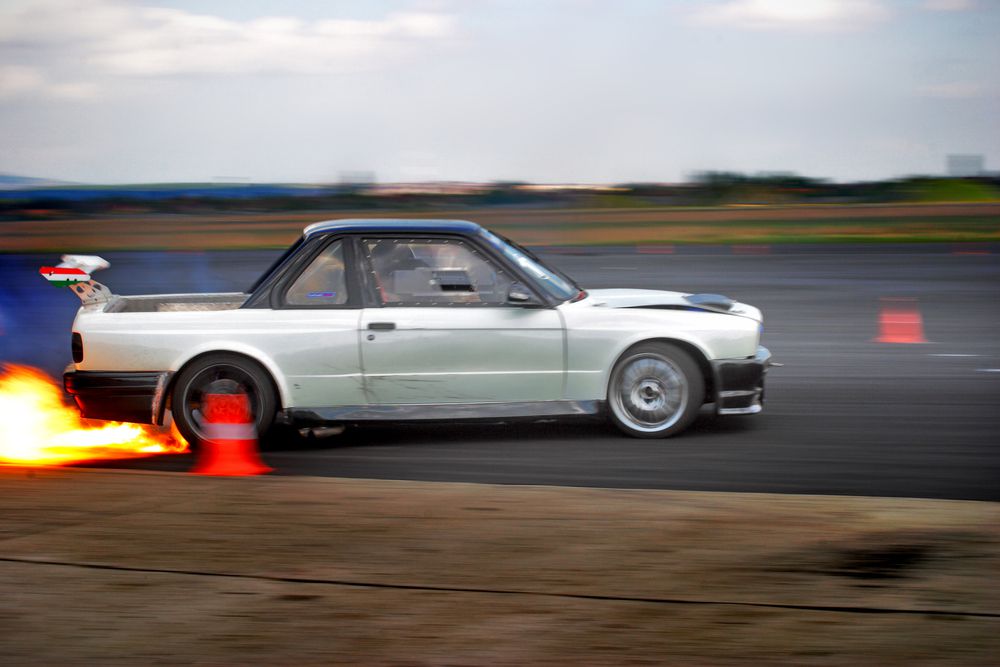 Car backfiring
Car backfiring
Why Would A Car Backfire?
Internal combustion engines are powered by a controlled combustion of compressed fuel and air in the combustion
chamber.
A backfire means combustion occurred outside your combustion chamber, normally in the exhaust manifold.
The engine combustion process starts with fuel and air intake into your cylinders:
-
Air comes through the intake valves from the atmosphere and fuel from the fuel injectors.
-
The piston compresses the fuel and air, and the spark plug ignites the mixture to create combustion.
-
The combustion event pushes the piston back down, sending power to the crankshaft to create rotational power and
generate horsepower.
-
The exhaust valve then releases the fumes to complete the process.
This process will repeat itself as long as your car engine is running.
If you hear a violent sound like a bang, pop, or explosion, something went wrong with the process.
What Is The Most Common Cause Of Backfire?
More often than not, cars will backfire for any of the following reasons:
-
Poor air/fuel mixture
-
Misfiring spark plug
-
Faulty fuel injectors
-
Clogged fuel filter
-
Damaged valves
-
Incorrect timing
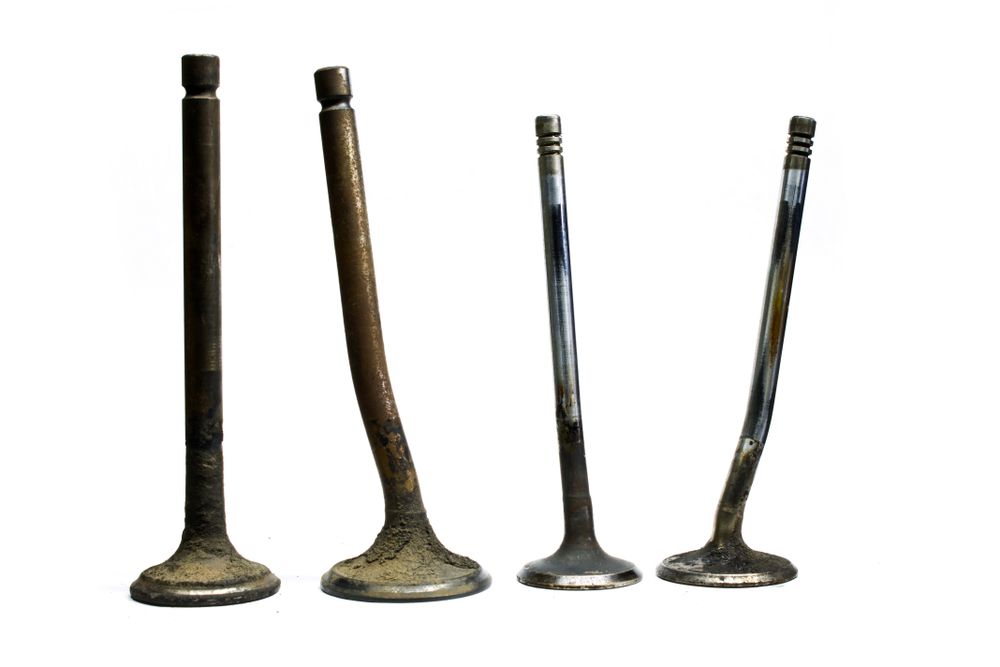 Bent car valves will not seal properly and will cause a backfire.
Bent car valves will not seal properly and will cause a backfire.
1) Poor Air/Fuel Mixture
When the combustion chamber contains too much air and too little fuel or has enough fuel but insufficient air, it may
backfire.
The engine is said to run rich when too much fuel and lean when the air supply is excessive.
Both situations are bad for your engine.
When your oxygen or air flow sensor is damaged, your fuel and air supply can be out of proportion.
2) Bad Spark Plugs
When the spark plugs fail to ignite, fire weakly, or fire at the wrong time in the ignition process, the engine may
backfire.
Spark plugs can malfunction due to oil in the combustion chamber, carbon buildup, or improper spark plug
gapping.
If the engine's piston rings are worn, oil could bypass them and foul the plugs by covering the spark plug's tip in
oil.
Carbon deposits on your plug's electrodes decrease the spark voltage, making ignition harder.
The buildup can be caused by a damaged distributor cap, a dirty air filter, or a rich air/fuel mixture.
Incorrect spark plug gapping produces a voltage too weak to achieve the combustion process. Therefore, the gaps
between the plug electrodes must be precise to ensure an optimal voltage.
3) Faulty Fuel Injectors
A bad fuel injector may leak excess fuel into the combustion chamber.
This leads to leftover unburned fuel after the combustion process.
It gets into the exhaust system and triggers an unwanted combustion event when the sparks ignite.
A fuel injector won't function properly when defective or clogged with debris.
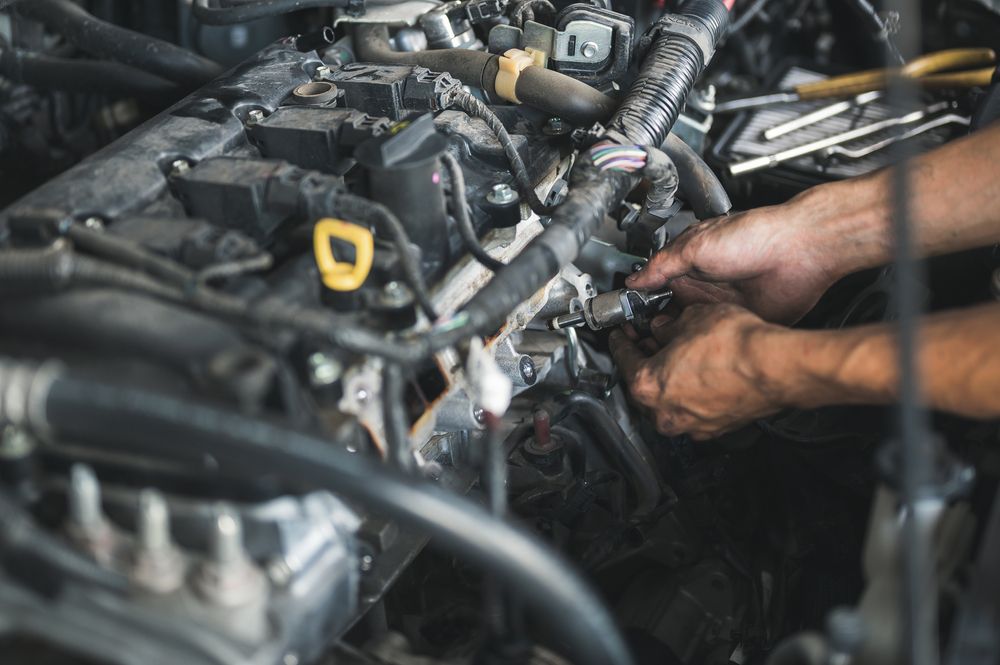 A mechanic removing a bad fuel injector.
A mechanic removing a bad fuel injector.
4) Damaged Valves
The cylinder head valves are timed to open to let the air and fuel in, let the exhaust out, and close to maintain
pressure during combustion.
If the exhaust valves leak, unburnt fuel could enter the exhaust manifold and ignite, causing a backfire.
5) Clogged Fuel Filter
A clogged air filter cannot supply the engine with sufficient clean air, creating a poor fuel-air ratio. This
imbalance can trigger a backfire.
A dirty filter can also let contaminants enter your fuel cylinder, creating more significant problems for your
engine.
6) Bad Ignition Timing
When your ignition fires the spark too early or too late, the fuel and air mixture burns at the wrong time, leading
to a backfire.
-
If the spark is fired too early, before the intake valve closes, some of the gas escapes into the air intake to
create an uncontrolled combustion event.
-
If the engine timing is late, the unburned fuel vapors escape into the exhaust intake and explode in the
tailpipe.
Incorrect timing hardly occurs in modern cars because they have computer-controlled engines.
Instead, older vehicles are more susceptible to bad engine timing because they use timing belts.
Can A Bad Ignition Coil Cause Backfire?
An ignition coil supplies the spark plug with the voltage required to ignite the air-fuel mixture.
A bad ignition coil may not completely burn the fuel and air mixture during combustion.
This causes excess fuel to escape into the car's exhaust system, leading to a backfire.
Can Exhaust Leak Cause Backfire?
Yes, a leaking exhaust lets in extra air, which can combine with unburnt fuel in the hot manifold and ignite to cause
a backfire.
Also, a leaking exhaust affects the combustion process and generates harmful fumes that are dangerous to you and your
passengers.
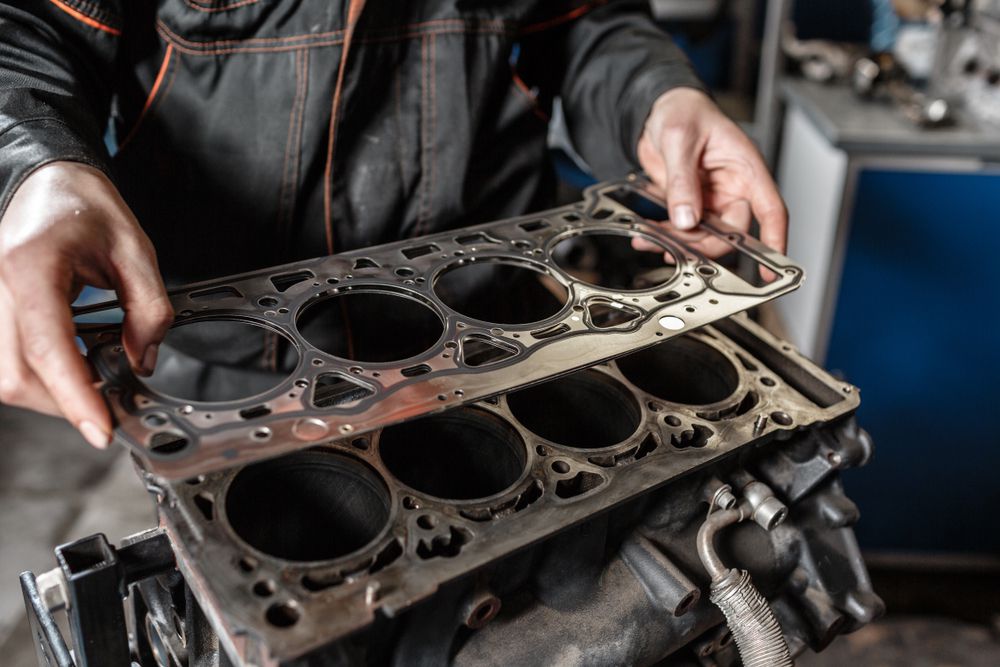 A mechanic installing a new head gasket.
A mechanic installing a new head gasket.
Can A Blown Head Gasket Cause Backfire?
If you have a backfire, it is most likely not caused by a blown head gasket.
A head gasket creates a seal between the engine block and the cylinder heads.
A blown head gasket usually triggers visible tailpipe smoke, and your engine may overheat.
You must replace a compromised head gasket before extensive damage occurs to your engine.
Can A Car Backfire When Shifting Gears?
Yes, a car can backfire when shifting gears. This is because when you downshift, the fuel mixture can become too lean
to ignite in the combustion chamber, so it gets pushed into the exhaust manifold, where it ignites and causes a
backfire.
An afterfire when you are shifting gears is not harmful to your vehicle.
How Do You Fix A Car That Backfires?
If you hear a backfire and it triggers the Check Engine Light (CEL), you should visit a trusted mechanic immediately.
The mechanic will diagnose the cause of the backfiring by checking the diagnostic codes on your ECM car computer with
an OBD2 scanner.
Amazon has a multitude of OBD2 scanners at affordable prices like this one here (paid link).
The mechanic may then recommend any of the following fixes:
1) Replacing The Oxygen Sensors
Oxygen sensors are located in the exhaust pipe and measure the oxygen content of the exhaust gasses to help the ECU
calculate the needed intake air-fuel mixture.
You need to replace your oxygen sensor if your mechanic determines it is responsible for the unbalanced fuel-air
ratio.
2) Changing The Spark Plug And Spark Plug Wires
A defective spark plug or faulty plug wire is a common cause of backfires.
A bad spark plug or wire could lead to unburnt fuel being pushed out the exhaust valve into the hot exhaust manifold,
where it will be ignited and cause an engine backfire.
3) Cleaning Or Replacing The Fuel Injectors
A mechanic can clean clogged fuel injectors to get them back to optimal condition. However, you must replace the
injector if the malfunction is due to wear and tear.
A good fuel injector lasts between 50,000 and 100,000 miles. Though, a lack of engine maintenance can still
significantly shorten its lifespan.
4) Cleaning Or Replacing The EGR Valve
The EGR (Exhaust Gas Recirculation) valve recirculates exhaust gasses back into the intake manifold so the engine can
burn it again to ensure any harmful gasses are 100% burnt.
Carbon deposits blocking the passages in your EGR valve can be removed with a valve cleaner.
A failed valve, on the other hand, must be replaced.
You can use an ECU scan tool to test your valve to ascertain whether it has stopped functioning correctly.
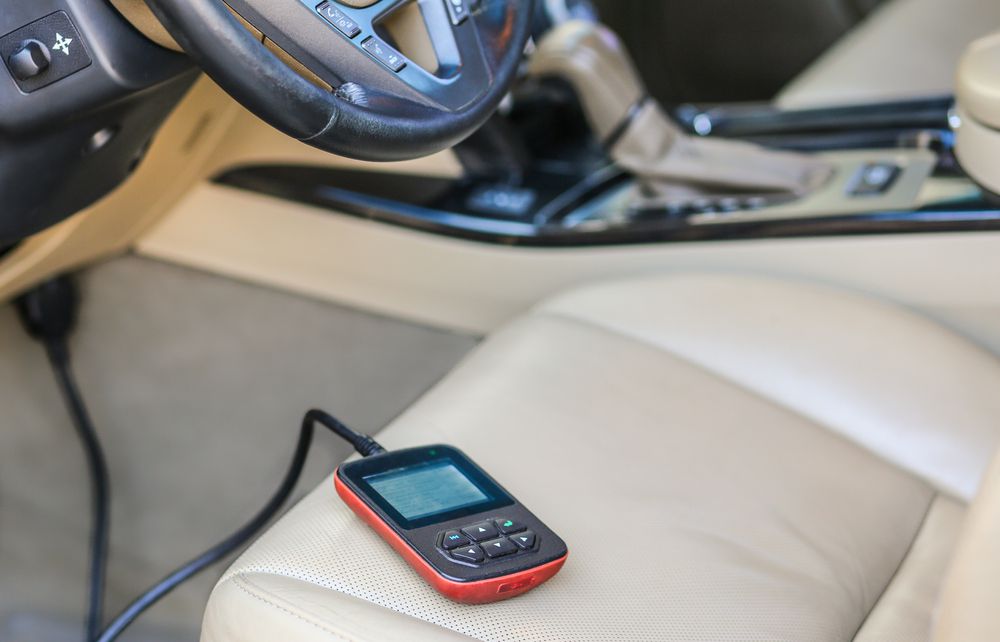 Scanner tools can help diagnose engine problems.
Scanner tools can help diagnose engine problems.
Adjusting Ignition Timing
You can rotate the distributor clockwise or counterclockwise on older vehicles to increase or reduce the timing.
Information about the correct engine timing is in your vehicle's repair manual.
This rarely applies to newer vehicles since the computer controls the timing.
However, if it's wrong, your mechanic will correct the timing.
How Much Does It Cost To Fix A Backfire?
The cost to fix a backfire depends on the problem and could vary greatly.
It could cost just 50 dollars to replace a spark plug wire or thousands to do major engine work.
How Do You Stop A Car From Backfiring?
You can prevent most car backfires by performing regular maintenance according to the schedule specified in your
car's owner's manual. The instructions you should particularly follow include the following:
-
Changing the air filter at specified intervals
-
Changing your spark plugs at the proper replacement interval
-
Making sure your engine belts are always in proper working order
-
Maintaining a healthy exhaust and catalytic converter
-
Changing the oxygen sensor when it has over 75,000 miles on it
The Bottom Line
Backfires in cars happen when unburnt fuel escapes the car's combustion chamber and detonates in the hot exhaust
manifold.
Problems that could backfire include faulty spark plugs, bad ignition timing, and exhaust valves.